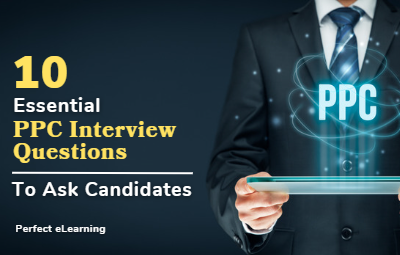

Learn how to make a lasting impression on employers with strong and credible professional recommendations.
When employers evaluate job applicants, they seek more than just a list of qualifications; they aim to understand the individual behind the resume. This is where resume references come into play. A strong set of references can elevate your application from merely informative to highly persuasive.
1.What Are Resume References?
Resume references are individuals who can vouch for your professional abilities, character, and performance. These are people who have worked closely with you in a professional capacity, such as supervisors, colleagues, mentors, or clients. References lend credibility to your claims and provide employers with additional perspectives on your suitability for a role.
2.The Role of Resume References
References serve as a bridge between your resume and the interview stage. They allow employers to gauge how well you've performed in past roles and how you interact with colleagues and superiors. References can highlight qualities that are harder to discern from a resume alone, such as teamwork, leadership, and adaptability.
3.Building a Strong Reference List
Selecting the right references is crucial. Opt for individuals who have firsthand knowledge of your work and can provide specific examples of your achievements. It's wise to seek references from various stages of your career to showcase your growth and consistency.
4.Nurturing Professional Relationships
Maintaining positive relationships with your references is essential. Regularly update them on your career progress and ask for permission before sharing their contact information with potential employers. A well-nurtured relationship can lead to a stronger reference.
5.Ensuring Relevance of References
Tailor your reference list to the job you're applying for. If possible, include references who have experience in the same industry or role. This alignment makes your references more relevant and valuable to the prospective employer.
6.The Impact of Positive References
Positive references can significantly influence an employer's decision. A glowing recommendation can provide an edge over other candidates and instil confidence in your abilities. Conversely, a lacklustre reference might raise doubts.
7.References vs. Recommendations
It's essential to understand the distinction between references and recommendations. While references are typically contacted directly by employers, recommendations are usually written endorsements that you provide. Both are valuable but serve different purposes in the hiring process.
8.Addressing Potential Concerns
If you're concerned about a potential reference providing negative feedback, address the issue proactively. Have a candid conversation with the reference and work towards resolving any misunderstandings before they impact your application.
9.Crafting an Effective Reference Page
Your reference page should be well-organised and include the reference's name, title, company, relationship to you, and contact information. Ensure it compliments your resume's design and formatting.
10.Utilizing References During the Hiring Process
References are usually contacted later in the hiring process, after initial interviews. Be prepared to provide additional context to your references about the role you're pursuing so they can tailor their responses accordingly.
11.The Changing Landscape of Resume References
In today's digital age, references are no longer limited to phone calls. Employers may reach out via email or use online platforms to collect feedback. Adapt to these changes to ensure a seamless reference-checking process.
12.Maximising the Power of References
Encourage your references to highlight specific skills or experiences that align with the job description. This targeted approach can reinforce your suitability for the role.
13.Common Mistakes to Avoid
Avoid listing references without their consent or failing to prepare them for potential contact. Also, ensure your reference information is up to date and accurate.
Conclusion
Resume references play a pivotal role in the hiring process, offering employers a deeper understanding of your qualifications and character. Leveraging positive references can give you a competitive advantage and increase your chances of landing your desired job.
FAQs(Frequently Asked Questions)
Q1. Can I include personal references, such as friends or family, on my reference list?
A1: While personal references can speak to your character, it's generally better to include professional references who can vouch for your work-related abilities.
Q2. Should I provide references even if the job application doesn't explicitly ask for them?
A2: It's a good practice to have a reference list ready, but wait until you're asked to provide it before sharing with potential employers.
Q3. How many references should I include on my list?
A3: Typically, 3-5 references are sufficient. Quality matters more than quantity.
Q4. Can a negative reference ruin my chances of getting a job?
A4: While a negative reference can be detrimental, employers often consider multiple factors. Focus on cultivating positive relationships to minimise this risk.
Q5. Is it necessary to inform my references every time I share their contact information?
A5: Yes, it's courteous to seek their permission before sharing their details. It also gives them a heads-up that they might be contacted.
Perfect eLearning is a tech-enabled education platform that provides IT courses with 100% Internship and Placement support. Perfect eLearning provides both Online classes and Offline classes only in Faridabad.
It provides a wide range of courses in areas such as Artificial Intelligence, Cloud Computing, Data Science, Digital Marketing, Full Stack Web Development, Block Chain, Data Analytics, and Mobile Application Development. Perfect eLearning, with its cutting-edge technology and expert instructors from Adobe, Microsoft, PWC, Google, Amazon, Flipkart, Nestle and Info edge is the perfect place to start your IT education.
Perfect eLearning provides the training and support you need to succeed in today's fast-paced and constantly evolving tech industry, whether you're just starting out or looking to expand your skill set.


